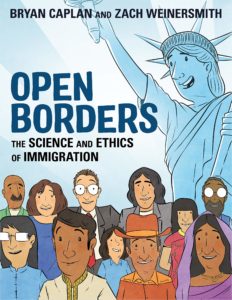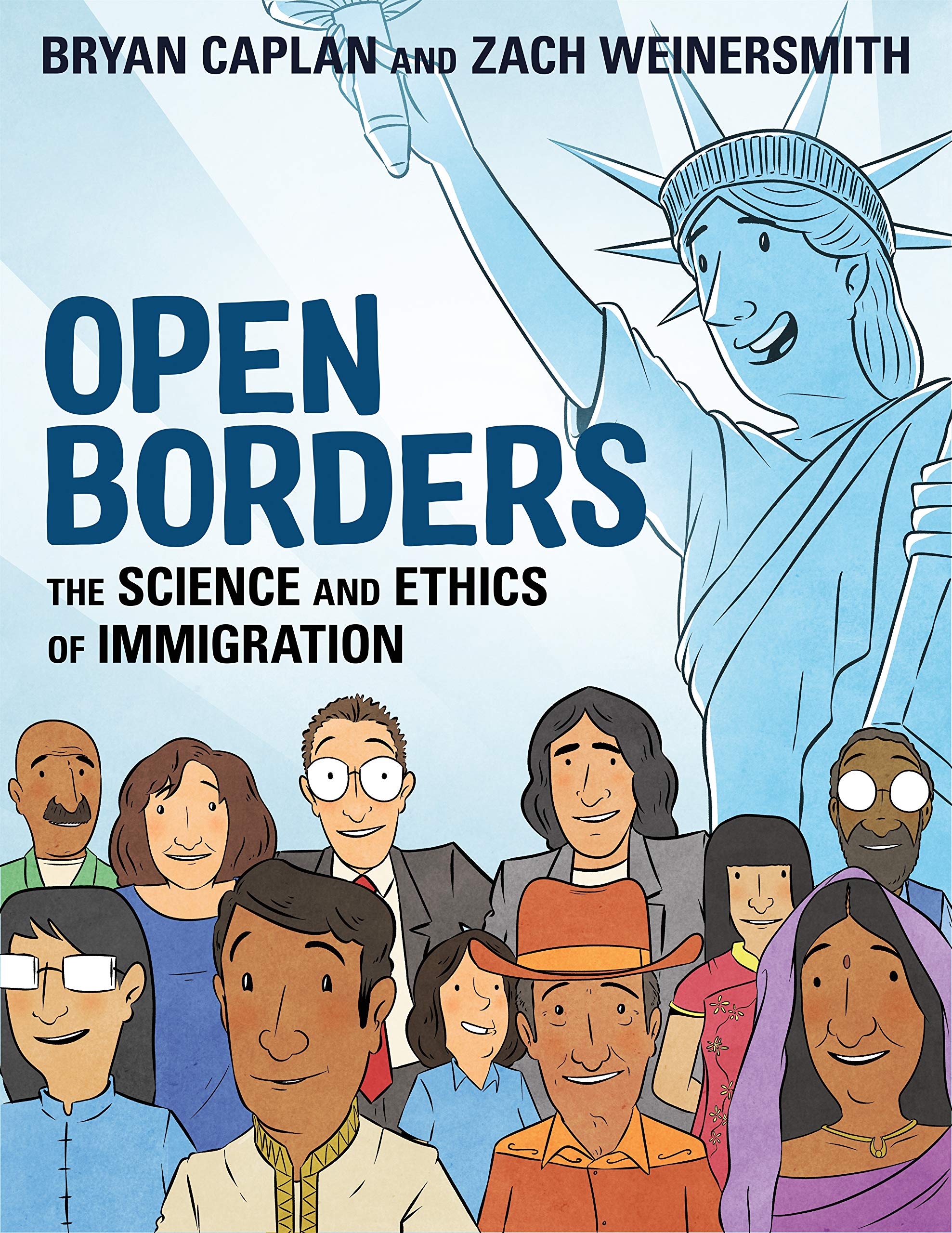
Somehow I missed Indiana University sociology professor Fabio Rojas’s April article titled “Conservative Arguments in Support of Undocumented College Students,” published by the James G. Martin Center for Academic Renewal. It appeared on April 19. I won’t comment on whether his arguments are conservative; I don’t care. The problem is that they’re not good arguments.
He starts out strong, defending the idea that people should be able to move here, a view I largely share.
But I combed the article looking for any mention of the fact that the students whom he wants the government to subsidize are not “undocumented;” they are illegal. I hasten to add that I’m not advocating that they be kicked out of the country. Like him, I want them to be able to stay.
That’s different, though, from claiming, as Rojas does, that they should be subsidized. What is his argument? Here is one of his main ones:
The exclusion of undocumented students also runs afoul of our most cherished legal traditions. The Eighth Amendment to the Constitution prohibits “cruel and unusual punishment.” If one were to take the text in its original meaning, it would certainly imply that rules and regulations that prohibit people from obtaining an education because of a non-criminal procedural violation are not valid. This is because educational credentials are often needed for many well-paying jobs in society. They are also needed if one wants to practice a variety of occupations, such as medicine, law, and teaching. Not only would the exclusion of undocumented students result in vast losses of income, but it also deprives these students of the freedom to compete for jobs and thus contribute to their society.
In Rojas’s view, telling someone that you are not going to subsidize one of his actions is the same as prohibiting that person from acting. I hope I don’t need to tell readers of this blog why they’re not the same. But just in case, not subsidizing illegal aliens does not in any way reduce their freedom to get an education; it just means that they won’t be funded by taxpayers.
Interestingly, some of the commenters on his article state that his view is like that of my co-blogger Bryan Caplan. But if so, Bryan has done a great job of hiding it. Like Rojas, Bryan believes in open borders. But Bryan, like me, wants to respond to critics who worry that immigrants will come here to be subsidized. That’s why he spends a lot of space in his recent book advocating keyhole solutions. One standard keyhole solution is not to subsidize immigrants, illegal or otherwise.
We already have tens of millions of strong opponents of immigration and they seem to be having a loud voice in the policy discussion. We aren’t going to handle one of their main objections if we advocate subsidizing illegal immigrants. If Rojas wants immigrants to be more welcome, he should advocate the opposite of what he advocates. Immigrants should be free to go to college but should not be able to be subsidized by taxpayers. How about U.S. citizens and legal immigrants? Should they receive subsidies to go to college? No, but adding a few more hundred thousand wrongs to about 15 to 20 million wrongs doesn’t make a right.


READER COMMENTS
Thaomas
Jan 6 2020 at 4:40am
Agreed that we should not frame this as a rights issue; it should be a benefit-cost issue. If there is a net benefit to subsidizing higher education (there is inmost cases, I presume) then undocumented aliens would contribute to the benefits as much as any other student and it would be inefficient to exclude them. Indeed, if they have faced more difficulty than most students in arriving at the university gate, the marginal benefit to educating them may be a bit higher than other students.
Jon Murphy
Jan 6 2020 at 8:28am
According to whom? Costs and benefits are subjective. Whether or not costs exceed benefits depends on who is analyzing them. So, who (point to me the individual) who decides.
Thaomas
Jan 6 2020 at 9:42am
I suppose you mean the results of a cost benefit analysis depends on how they are analyzed and I agree that no two analysts would come to the same results. Or do you mean that the results are not value free? I would also agree with that.
Jon Murphy
Jan 7 2020 at 1:27pm
It is true that different people will have different outcomes, but that’s only part of the point here. The larger point is that the estimates between the analysts aren’t comparable.
Thaomas
Jan 8 2020 at 2:01am
I don’t understand that point. Surely one can look at two analyses and see what assumptions made the difference in the results.
Alexander Turok
Jan 6 2020 at 3:04pm
Why would you presume this?
Thaomas
Jan 7 2020 at 5:41am
Imperfect capital markets and the extra income generated is taxed. But if the case for subsidization is doubtful, it could still be a mistake to arbitrarily exclude some small group on the same grounds that exemptions from a uniform sales tax is probably less optimal than uniformity.
Thomas Knapp
Jan 6 2020 at 7:28am
“But I combed the article looking for any mention of the fact that the students whom he wants the government to subsidize are not ‘undocumented;’ they are illegal.”
Not according to the US Constitution, which nowhere authorizes, and in Article I, Section 9 prohibits, federal regulation of immigration.
David Henderson
Jan 6 2020 at 7:36am
True. I’m going by the actual laws that Congress has passed, but you’re right that the Constitution gives the federal government no power to regulate immigration.
I’m going with standard usage here in referring to laws that Congress has passed. The Constitution also gives the feds no power to regulate marijuana, but I still refer to marijuana, even in California, as an illegal drug because there is a federal law making it illegal. In your view, am I making a mistake in so referring to it?
BW
Jan 6 2020 at 9:10am
I agree that the federal regulation of immigration is not on the list of enumerated powers, but Article 1 section 9 does not prohibit the regulation of immigration. Clause 1 of section 1 is referring to the slave trade specifically, and even then it allows the federal government to ban it starting in 1808. And nothing else in section 9 would forbid federal regulation of immigration.
Todd Ramsey
Jan 6 2020 at 9:23am
Should be “How about U.S. Citizens and LEGAL Immigrants?”– Typo?
David Henderson
Jan 6 2020 at 10:39am
Yes. Now corrected. Thanks, Todd.
Mark Z
Jan 6 2020 at 8:56pm
Maybe he’s assuming his audience believe subsidizing higher education is by and large worthwhile, and therefore if it’s worthwhile for citizens, it’s worthwhile for illegal immigrants? This assumption probably isn’t warranted of course if his intended audience is conservatives.
I thought his Burkean argument was particularly unconvincing though. Considering the atmosphere of American universities today, if one wants to prevent ‘radical social change,’ subsidizing more people to go to universities – citizens or not – is likely one of the most counterproductive policies one could pursue to that end.
David Henderson
Jan 7 2020 at 9:59am
You wrote:
I agree.
Comments are closed.